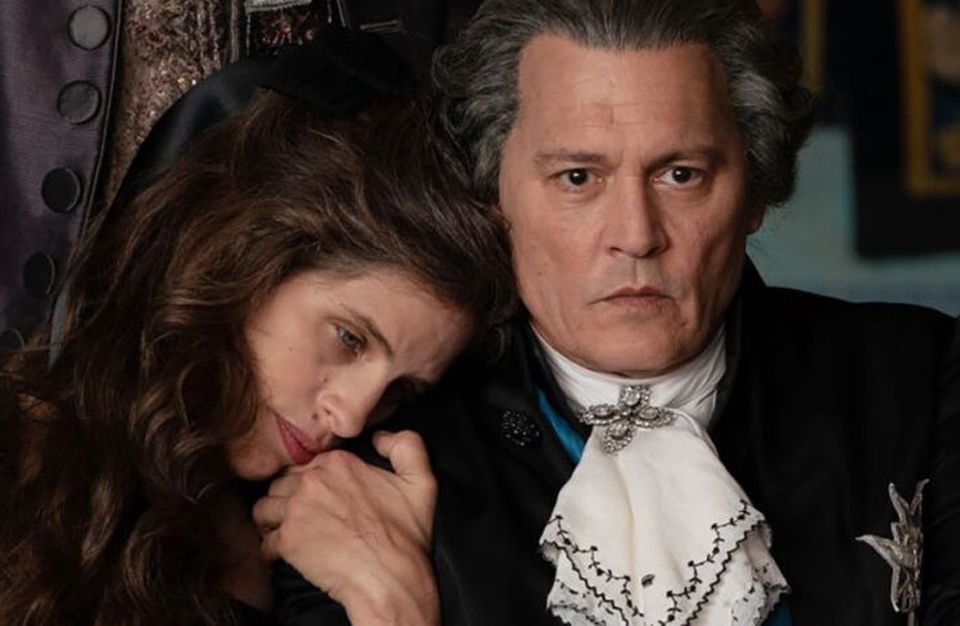Those of you who attended the French Film Festival may already have seen “Jeanne du Barry”. If you missed it, you can see it at the Barracks or at the Palace Cinema in James Street until 24th April 2024.
It’s an exquisite film that will take you on the journey of Louis XV’s last mistress, Jeanne du Barry. Louis was taken by her, as were many men, including M. du Barry who, at the King’s request, married her. That allowed her to be presented at Court, and hence be regularly in the King’s company.
It stars Maïwenn, as Jeanne. She both directed the film and co-wrote the script. Johnny Depp, in his first French film, is well suited to the role of Louis XV. Benjamin Lavernhe plays Jean-Benjamin de La Borde, who, in serving the King, is also an adviser to Jeanne.
The music, by Stephen Warbeck, PROVIDES a sublime ambience to the story, weaving us in and out of the subtleties of the rules of Louis XV’s Court.
The landscape combined well with the music to reflect the emotions, with storms and large sweeping vistas used poignantly throughout.
The opulence of Versailles provided the background to the storytelling.
A remarkable girl with a thirst for knowledge, Jeanne (played by Emma Kaboré Dufour) was lucky enough to be brought up with the guidance of a caring, rich benefactor for whom her mother worked. She learnt not only to read, but to love literature. She was taught the oral parlour word games fashionable in the era. She was quick to learn, and was sent to a convent for her education. Her indulgence in literature and nature led to her expulsion. (Loli Bahia played her as a teenager).
Her first work after school was with a widow with twin sons. These led her astray and showed her the delights of sensuality, for which she had a natural talent. Open and curious, Jeanne bounced back from expulsion from school, and sacking by the widow.
She moved to Paris and found work as an artists’ model, refusing to take off her clothes. It was her curiosity and her desire to make decisions for herself that, paradoxically, led her to a life of harloty. She found a living among the rich and influential men. Emmanuel Armand de Richelieu (the famous diplomat’s nephew, played by Pascal Greggory) was enthralled with her. Count Guillaume du Barry (Melvil Poupaud) found her all-consuming and made her his partner, later marrying her at the King’s request. She loved his son, educating and raising him to be a gentleman. With their own interests in view, they found a way for the King, known for his extramarital affairs, to meet her. And meet her he did. She wouldn’t succumb to the ritualistic habits of the Court, and laughed with him at them. They met beyond the mores of the day, in a place inhabited by free humans. It was a very small space, but, with the help of La Borde, Jeanne and the King could find time away from the golden cage within which they lived.
Once his wife died, the King threw caution to the wind and, after she formally married du Barry, had her presented at Court. She refused to wear a wig, or a crinoline and instead, changed the habits of those at Court. du Barry style was a “thing” with the younger set.
To celebrate her presentation the King gifts her a young Indian slave called Zemor (Ibrahim Yaffa as the boy, and Djibril Djimo when a teenager) whom she educates and raises and who, using his wits, outlives her.
It is her joie de vivre that enthrals us as much as the men in her lives. The women don’t hold her in the same regard. Her mother was worried for her. The nuns tried to tame her spirit. The King’s daughters detested her. And Marie Antoinette was quickly talked by them into making her an enemy.
And in the end? The King died a terrible death from smallpox. The doctors bled him while his daughters kept their distance. Yet his closest friends and advisers disregarded the contagion and comforted him. I suspect the filmmaker had a choice between educating the audience about the terror of small pox and keeping the love story going until the very end. They chose the latter, safe in the knowledge that small pox exists now only in laboratories. But note, it’s highly contagious and the closeness of Jeanne and the King would almost certainly have led to her catching it too.
The film ends with her expulsion, yet again, to a convent and then back to her estate in Louveciennes. The remainder of her life is material for another film.
The biography of Jeanne du Barry is an enthralling read. The life of Maïwenn, is already an enthralling read. You will be enriched by viewing this film. Highly recommended.
Book here: https://www.palacecinemas.com.au/movies/jeanne-du-barry


